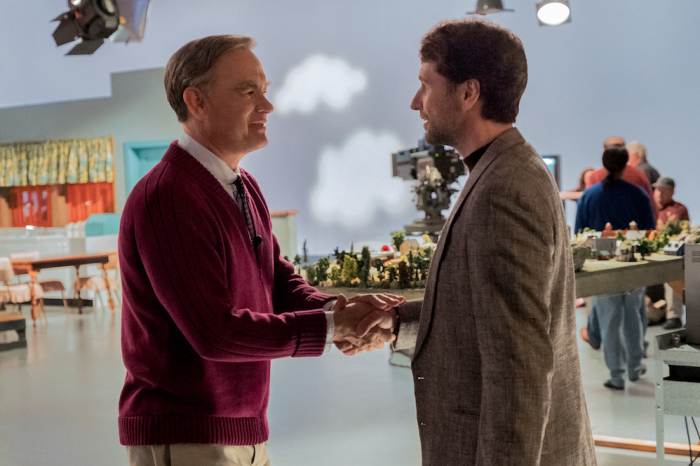Fred Rogers’ iconic TV program taught people how to be ‘human;' the show was ‘his ministry’

PITTSBURGH, Pa. — “A Beautiful Day in the Neighborhood” starring Tom Hanks is now showing in theaters nationwide and gives viewers an inside look into how Fred Rogers helped others embrace their humanity and keep hope alive.
Rogers attended Pittsburgh Theological Seminary where he was ordained as a Presbyterian minister in 1963 and worked in television for more than 30 years.
Bill Isler, a longtime friend of Rogers and former president of the Fred Rogers Company, said “Mister Rogers Neighborhood” was a mission field for the Pennsylvania native.
"Fred lived his faith. There was not a distinction in Fred's life,” Isler told The Christian Post on Thursday. “He felt that the program was his ministry and he would always say, 'I'm glad you can use our work.’ Fred intentionally lived what he believed was important to him, and his faith was very important to him.”
The film is based on an article written by journalist Tom Junod who formed a friendship with Rogers while writing a profile on his life and work. The movie details how their friendship changed Junod’s life by helping him to process past hurts and forgive those who had hurt him.
Junod, who was at the Pittsburgh premiere last Wednesday and had a sit-down interview with CP the following day, said people in this day and age have a hard time slowing down and processing what they feel.
"It's really hard being a kid today," he said. "I have a 16-year-old daughter and I watch her and a lot of people think kids are soft now, they're snowflakes. I think kids have to be really tough now because a lot of the things that communicate with them are technological in nature. They're driven by technology. They're not driven by human values, they're driven by technological values.”
Junod noted that young people growing up now really don't have a chance to process what they're feeling because “social mediums are really unfeeling.” He believes Rogers would have encouraged current and future generations to take a break and actually experience what they're feeling and work through it.
"I think that Fred's example really just says, 'Be more human, listen, feel, slow down.' The values that Fred spoke of, he had a lot of faith, but he spoke of human values. He defended human values, and that's what I think that he would tell kids now. There is no easy answer to any of this. But slow down, listen, take a breath, look at somebody in the eye and shake their hand and try to get to know them.”
Director Marielle Heller was determined to tap into that human experience when telling Junod and Rogers’ story.
Throughout the United States, Rogers is considered a hero who impacted the lives of millions through his TV show, and his impact continues to live on.
"What I'm interested in is human connection," Heller told CP. "It's tough to walk around in this world; it's tough to be alive. Fred didn't shy away from being honest about how hard these things are and how we need ways to learn how to process, to cope, because it is painful to be alive and I feel that in many ways.”
“I feel grateful and happy and all of those things, but I also recognize the pain that we're all experiencing, the collective pain were experiencing, that our children are experiencing. The fear that we're living within this moment in time,” she continued.
The filmmaker said the antidote to fear and pain is a connection with others.
"I think, for most of us who choose to make movies, our hope is to make us feel more connected to each other and to our humanity. This movie particularly has connected me deeply to my humanity. It's connected me deeply to the pain of being alive and to the ways in which we all have childhood trauma that is there that we need to heal; that you're never too old to need somebody to look you in the eyes and tell you that you have value and that you are special,” Heller concluded.
“A Beautiful Day in the Neighborhood” is now showing in theaters nationwide.




























